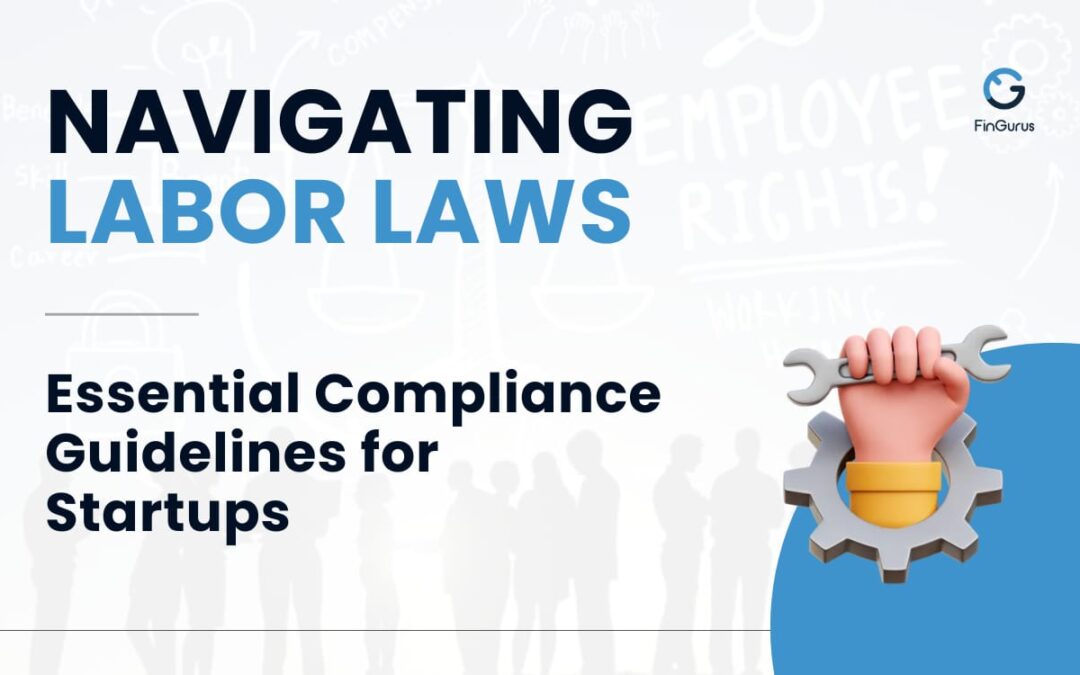Startups epitomize a modern work atmosphere, marked by innovation, tackling contemporary challenges, fostering fresh ideas, and radiating positive energy. However, amidst this vibrancy, both employers and employees are tethered to labor laws that have endured for centuries. Despite occasional updates, these regulations struggle to keep pace with the ever-evolving dynamics of the contemporary workplace.
Recognizing the imperative to harmonize labor regulations with the swiftly shifting landscape of work is paramount. Employers need comprehensive knowledge of their obligations towards their workforce, achieved through adherence to relevant labor laws and regulations. This includes compliance with statutes such as the Payment of Wages Act, provisions for gratuity, management of provident funds, maternity benefits, prevention of sexual harassment at the workplace, ensuring favorable working conditions, and facilitating medical, retirement, and associated benefits in India.
A detailed understanding of labor laws is indispensable for running organizations smoothly and legally. The Ministry of Labor & Employment has advocated for a compliance regime based on self-certification for States, Union territories, and Central Labor Enforcement Agencies. Additionally, it stresses that startup regulations should align with existing labor laws.
One notable advantage of strict adherence to these regulations is that startups submitting a self-declaration for compliance with specified labor laws within the first year of commencing business will not face inspections under the respective legislations.
This blog will delve into the labor law compliances necessary for startups.
Exemptions Granted to Startups
Startups enjoy leniency, being exempted from inspections for up to three years from the commencement of business, provided they furnish a self-declaration for labor law compliance. Furthermore, startups categorized under the ‘white category’ concerning environmental laws will only face occasional random checks.
Labor Law Regulations Requiring Self-Declaration from Startups:
- The Building and Other Constructions Workers’ (Regulation of Employment and Conditions of Service) Act, 1996
- The Inter-State Migrant Workmen (Regulation of Employment and Conditions of Service) Act, 1979
- The Payment of Gratuity Act, 1972
- The Contract Labor (Regulation and Abolition) Act, 1970
- The Employees’ Provident Funds and Miscellaneous Provisions Act, 1952
- The Employees’ State Insurance Act, 1948
Compliance with Labor Laws:
Ensuring compliance under labor laws enables startups to avoid legal entanglements and harassment. Startups must ensure statutory compliance under the following labor laws:
- The Building and Other Construction Workers (Regulation of Employment & Conditions of Service) Act: This Act governs the employment and conditions of service of construction workers, emphasizing safety measures for worker welfare.
- Inter-State Migrant Workmen Act, 1979: Formulated to oversee conditions of interstate laborers, this Act aims to protect migrant workers’ interests and facilitates interstate labor hiring.
- The Payment of Gratuity Act, 1972: Providing gratuity payment to terminated employees within 30 days, this Act acknowledges employees’ service.
- Minimum Wages Act: Ensures just and adequate living wages for laborers, directing governments to fix and revise wages for scheduled employment.
- Contract Labour Regulation & Abolition Act, 1970: Regulates employment conditions of contractual laborers, aiming to abolish harmful working conditions.
- Employee State Insurance Act, 1948: Guides employees during sickness, injury, or maternity, applicable to factories with more than ten employees.
- Industrial Employment (Standing Orders) Act, 1946: Directs employers to define employment conditions and submit draft standing orders for certification.
- Trade Unions Act, 1926: Ensures worker safety, long-term employment, and fair wages, while regulating trade unions.
- Industrial Disputes Act, 1947: Aims for industrial peace through dispute resolution methods and regulation of unfair labor practices.
Remember, these rules are here to help, not hinder. Knowing them inside out will make running your startup a breeze. And with that knowledge, you can focus on what really matters: building your dream business!

